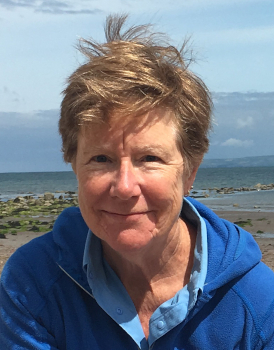
Kate Halliday, LCSW
Kate Halliday, LCSW is a psychotherapist based in Ithaca New York. She has been in private practice since 1998 after a number of years spent in community human service agencies.
Over the course of a long career, Kate has been influenced and enlivened by a wide variety of experiences and teachers. She began her career as a nursery school and elementary school teacher, and went on to train as a clinical social worker. A writer and a pragmatist, she was initially drawn to Solution Oriented and Narrative therapy. A longing to feel more effective in treating trauma led her to train in EMDR in 2000, and in 2009 she began learning AEDP. Like many of us in the AEDP community, Kate fell in love with the model from the first moment she saw Diana Fosha present a videotape; and in the years since, Kate has enjoyed every moment of AEDP-related experience.
After several years of assisting in Essential Skills courses, Kate recognized that her longing for more ongoing lived experience of AEDP might be realized by generating an AEDP community where she lives in the Finger Lakes region of New York State. Kate began offering AEDP training groups to local clinicians there in April, 2015, and is delighted that the project has taken wings. There are now ongoing groups studying and being supervised in AEDP with her. Many of these clinicians attend Institute trainings elsewhere, and some are now Experiential Assistants in Essential Skills classes. Kate’s original commitment was to make AEDP accessible and affordable to clinicians in her local region which is far removed from a large urban center; this remains a primary interest for her as she considers how AEDP may be promoted around the world.
Kate’s clinical work, evolving from early training in Developmental Psychology and subsequent professional experiences, has focused on Trauma, Dissociation, and their repair. She has always had a commitment to serving her own GLBT community, and for the past decade or more she has had something of a speciality in work with transgender people. She is also re-discovering a passion for time limited treatment as she participates in the AEDP Research project.
Kate currently supervises both in her office and over Zoom. She's been pleased to discover that the process of remote meeting turns out to offer most if not all of the emotional intimacy and efficacy of in person sessions. Especially for those of us in far-flung locations, online supervision and even therapy offer opportunities for personal and professional growth (and delight!).